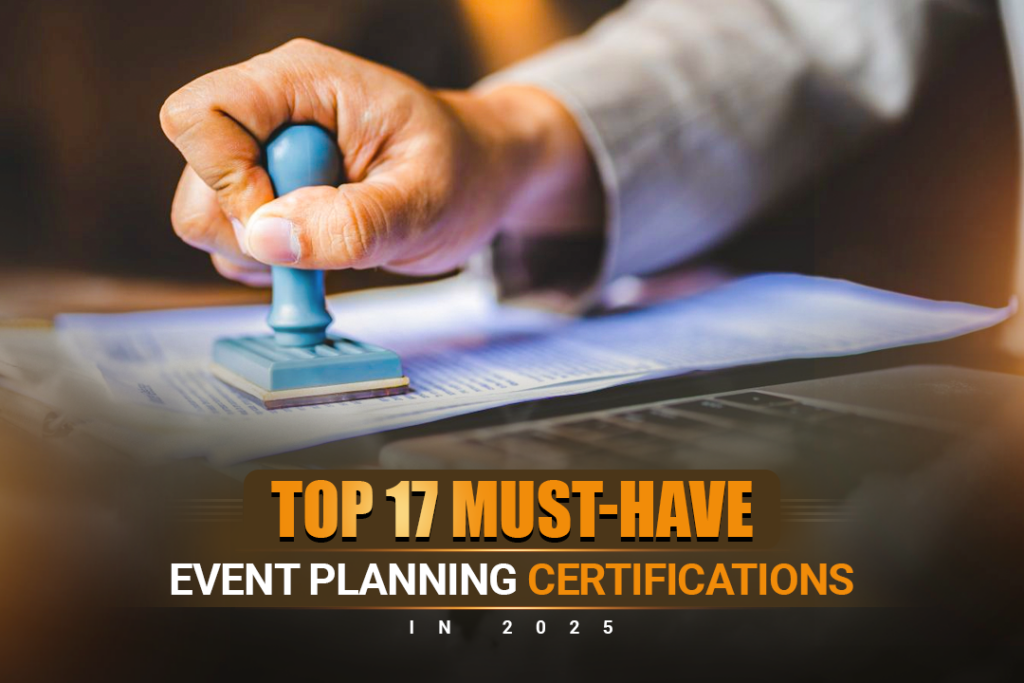
In today’s world, the role of event planners goes beyond just orchestrating gatherings—it’s about creating unforgettable experiences. They handle everything from securing venues to coordinating catering and ensuring security. Event planners have various primary duties, and there are also many certification programs that show their skills.
In this article, we will talk about the top 17 event planning certifications. We’ll explain why they’re important and tell you about the best ones. If you’re already an event planner or thinking about becoming one, this guide can help you out in your professional journey. So read along!
What are Event Planning Certifications?
Event planning certifications are special credentials or qualifications that professionals in the event management field earn to showcase their expertise and skills. These certifications are awarded after completing specific training programs, and they formally recognize an individual’s knowledge and capabilities in various aspects of event planning.
These certifications cover various topics related to event coordination, including venue selection, logistics management, budgeting, catering, and even aspects like risk management and security. They are designed to enhance the credibility of event planners and assure clients, employers, or collaborators that the certified individual has a solid understanding of the best practices and industry standards in event management.
17 Must-Have Event Planning Certifications
Here’s a list of 17 event planning certifications that will help you establish your credibility in the event industry:
1. CMP – Certified Meeting Professional

The primary objective of the Certified Meeting Professional (CMP) program, as outlined by the Convention Industry Council (CIC), is to standardize best practices, enhance the profession’s credibility, and elevate the performance of event planners. The CMP exam is crafted collaboratively by planners worldwide, and this esteemed certification is held by professionals spanning 55 countries. With over 14,000 meeting professionals achieving CMP Certification, the program has pioneered in establishing global standards for best practices in the event industry.
Price breakdown:
- Application fee – Around $350
- Exam fee – $525
- Annual maintenance fee – $1000
How do I become certified?
To become CMP certified:
- Accumulate three years of experience (with a degree) or five years (without) in the meetings industry.
- Review the CMP International Standards document provided by the Convention Industry Council (CIC).
- Concentrate on the diverse topics covered in the exam, including strategic planning, site management, event design, and marketing.
- Complete the CMP application on the Events Industry Council website and pay the required fee.
- Once your application is approved, schedule and take the computer-based CMP exam at a convenient location.
- Upon passing the exam, maintain certification by earning 25 continuing education clock hours every five years or retake the CMP exam for renewal.
2. CSEP – Certified Special Events Professional
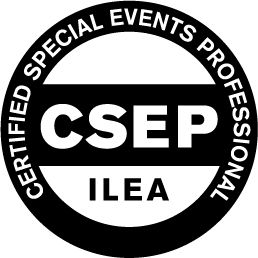
The Certified Special Events Professional (CSEP) certification is a designation awarded to experienced event professionals who have demonstrated a high level of skill, knowledge, and expertise in the special events industry. The International Live Events Association (ILEA), formerly known as the International Special Events Society (ISES), offers the certification.
CSEP is a globally recognized credential that signifies a commitment to professionalism and excellence in the field of special events. It is designed for event planners, designers, producers, and other professionals involved in creating and managing various scales and types of events.
Price breakdown:
- Application fee – $350
- Examination fee – $350
How do I become certified?
To become CSEP certified:
- Accumulate at least three years of full-time professional employment in the special events industry.
- Submit an application for the CSEP program, offered four times a year by the International Live Events Association (ILEA).
- Familiarize yourself with the structure of the CSEP exam and testing periods, which can be found on the ILEA website.
- Participate in the CSEP exam during the designated testing periods.
- Re-certify every five years to maintain your CSEP certification.
3. CPCE – Certified Professional in Catering and Events
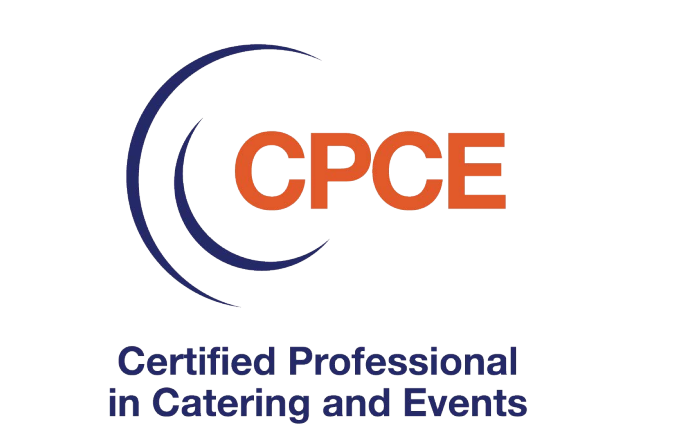
The Certified Professional in Catering and Events (CPCE) is a designation awarded to professionals in the hospitality and events industry, specifically those specializing in catering and event management. The National Association for Catering and Events (NACE) offers the certification.
The CPCE certification is recognized in the catering and events industry as a mark of excellence, showcasing a professional’s commitment to high standards and expertise in the field.
Price breakdown:
- Typically ranges from $550 to $1000
- For NACE members – $525
- For non-NACE members – $625
How do I become certified?
To become CPCE certified:
- Fulfill specific education and work experience criteria set by NACE. Eligibility may include a combination of academic qualifications and professional experience in the catering and events industry.
- Study for the CPCE exam, which covers various aspects of catering and event management, including food and beverage management, event design, logistics, and financial management.
- Schedule and take the CPCE exam, demonstrating your knowledge and proficiency in catering and event-related topics.
- Engage in ongoing professional development to stay current with industry trends.
- Renew your CPCE certification periodically, as specified by NACE.
4. CMM- Certificate in meeting management
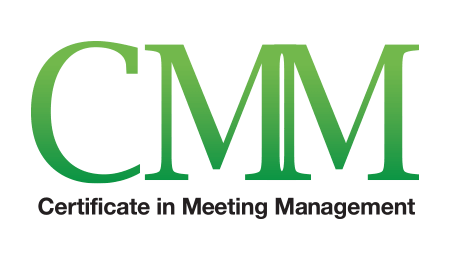
The CMM Certification is a comprehensive training initiative to hone participants’ business management skills. This program covers essential topics in business management and sets a “global standard of excellence” within the industry.
The program’s primary goals are to teach upcoming leaders how to handle and analyze business data, develop the skills needed to effectively lead teams, and provide insights into finance, risk analysis, and other aspects of business management.
The CMM program is essential for event organizers. It helps them grasp the ins and outs of data usage, master risk management, and build strong management and leadership skills, all vital for the success of events.
Price breakdown:
- Online courses can range around $300.
- Offline courses cost around $ 7,000, including tuition, course materials, and accommodations.
How do I become certified?
To become CMM certified:
- Sign up for the CMM certification program with customized training and study curriculum.
- Engage in the training provided by University of Virginia professors, covering crucial business management topics such as strategic negotiations, business analytics, and risk mitigation.
- Successfully finish the coursework, ensuring you grasp the critical event management and business concepts.
- Participate in the case study project integrated into the program, applying what you’ve learned to real-world scenarios in the event management industry.
- Fulfill all requirements outlined by the CMM certification program to qualify for certification.
5. VEMM – Virtual Event and Meeting Management
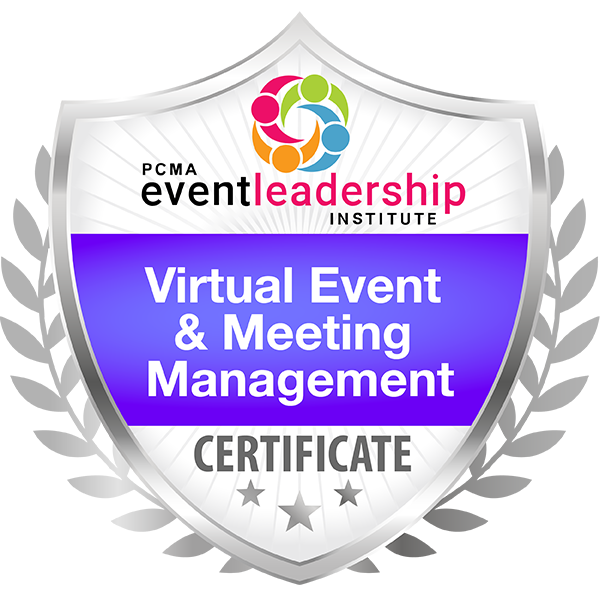
VEMM, or Virtual Event and Meeting Management, refers to a comprehensive training program offered by the Event Leadership Institute. It is designed to equip individuals with the essential skills and knowledge needed to excel in the dynamic field of virtual event management.
The VEMM program covers various topics related to planning, organizing, and executing virtual events and meetings. Participants gain insights into key aspects such as strategic planning, technology utilization, and effective management techniques specific to the virtual event landscape. For more information about virtual event management, check out our article on how to create engaging virtual networking events that boost business.
Price breakdown:
- Can range from $556 to $1195.
How do I become certified?
To become VEMM certified:
- Visit the official Event Leadership Institute website and enroll in the Virtual Event and Meeting Management (VEMM) Certificate program.
- The program is available on-demand, allowing participants to access the content conveniently and making it flexible for individuals with different schedules.
- To successfully complete the program and earn the certificate, participants must achieve a passing grade of 75%.
- Participants who successfully complete the program and meet the passing grade requirement receive a Virtual Event & Meeting Management certificate.
6. DES- Digital Event Strategist
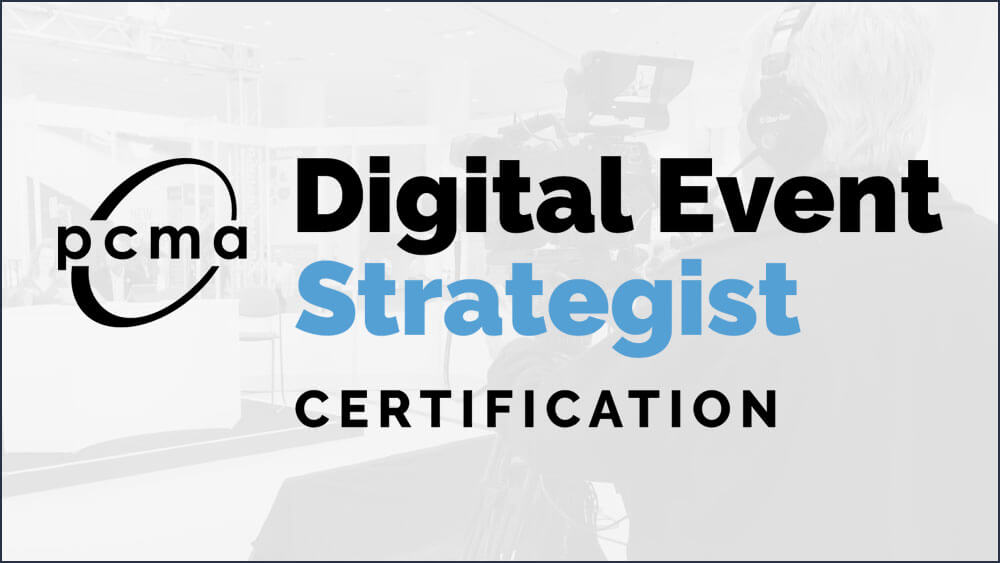
The Digital Event Strategist (DES) certification is a designation provided by the Professional Convention Management Association (PCMA). It is designed for professionals in the events industry who specialize in planning and executing digital and virtual events. It signifies expertise in navigating the complexities of online events, encompassing areas such as technology integration, audience engagement, content delivery, and overall digital event strategy.
Price breakdown:
- For PCMA members – $895.
- For non-PCMA members – $1195.
How do I become certified?
To become a Digital Event Strategist:
- Ensure you meet the eligibility criteria set by PCMA, which may include a combination of education and professional experience in the events industry.
- Enroll in the Digital Event Strategist certification program offered by PCMA. Check the PCMA website for details on enrollment procedures.
- DES event certification consists of three processes: demonstrating previous professional experience in the industry, the DES Online Learning Program, and the exam. The curriculum and exam cover user experience, content development, product launches, audience acquisition, and monetization techniques. The exam is based on this curriculum, as detailed on the DES Certification page.
- Engage in the program’s curriculum, which typically covers topics such as virtual event technologies, audience experience, and strategic planning for digital events.
- Successfully pass the DES certification exam, demonstrating your understanding of key concepts related to digital event strategy.
7. CGMP – Certified Government Meeting Professional
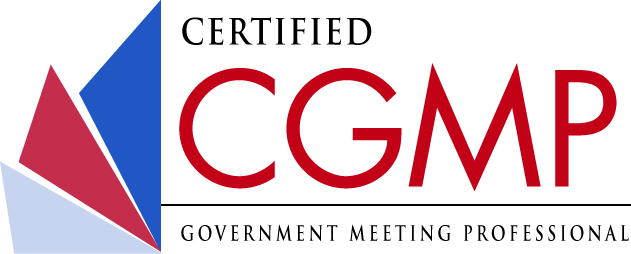
The Certified Government Meeting Professional (CGMP) certification is a designation offered by the Society of Government Meeting Professionals (SGMP). It is designed for individuals involved in planning and organizing meetings and events within the government sector. The CGMP certification demonstrates a commitment to adhering to ethical and professional standards in government-related event management.
Price breakdown:
- Can range from $595 to $649, including a three-day course and an exam.
How do I become certified?
To Become CGMP Certified:
- Ensure you meet the eligibility criteria set by SGMP, which may include a certain level of experience in government meeting planning.
- Attend the CGMP training program offered by SGMP. This program typically covers essential topics related to government meeting planning, ethics, and industry best practices.
- The program comprises a 100 multiple-choice-question exam and a three-day course consisting of instruction within various areas, specifically ethics, Federal budget and appropriations, Federal travel regulations, and contracting.
- Successfully pass the CGMP certification exam. Renew your certification if needed.
8. CEM – Certified in Exhibition Management
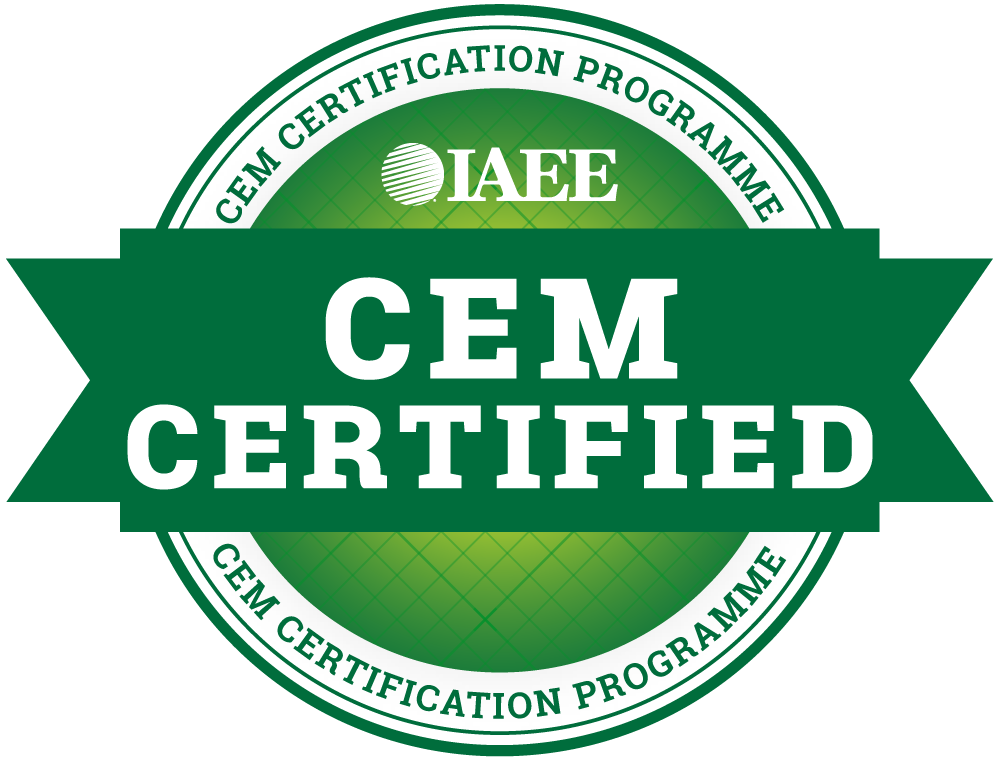
The Certified in Exhibition Management (CEM) is a globally recognized professional designation for individuals in the exhibitions and events industry. Administered by the International Association of Exhibitions and Events (IAEE), the CEM designation signifies a high level of expertise in exhibition and event management.
Price breakdown:
Course type | IAEE members | non-IAEE members |
On-location and virtual courses | $299 per course | $449 per course |
On-demand courses | $350 per course | $605 per course |
CEM-AP course | $1400 for two-day course | $1800 for two-day course |
Application fee | $100 | $125 |
Total cost | Around $2700 | Around $4000 |
How do I become certified?
To Become CEM Certified:
- Ensure you meet the eligibility criteria set by IAEE, which often includes a combination of education and work experience in the exhibitions and events industry.
- Enroll in the CEM program. The program typically includes a series of educational modules and courses covering various aspects of exhibition management.
- Candidates must choose nine of the 12 courses and pass an exam after completing each course. Candidates are given three years to complete all nine courses and exams.
- Through an extensive process, the CEM program provides a thorough and detailed education of the event industry, and graduates of the program benefit not only from the newfound knowledge but also from the valuable network of fellow CEM professionals.
9. CEPS – Certified Event Planning Specialist
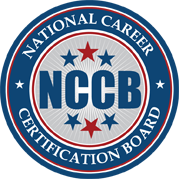
CEPS, or Certified Event Planning Specialist, is a certification offered by the National Career Certification Board (NCCB), specializing in entry-level certification for the career training industry. While it may not be as extensive as some other certifications, CEPS provides tangible proof of expertise, which is particularly beneficial for individuals starting their careers in the events industry.
Price breakdown:
- Course fees range from $1000 to $4060, depending on the provider.
How do I become Certified?
To attain the CEPS certification:
- CEPS does not require prior work experience or specific coursework, unlike some certifications. It is accessible to entry-level professionals in the events industry.
- The primary requirement is to pass a 30-question exam, following preparation with a few practice exams.
- The certification process, including the exam, costs $175 to complete.
- Geared towards entry-level event professionals, CEPS can enhance career opportunities and serve as a valuable credential in the industry.
10. CQEP – Certified Quality Event Planner
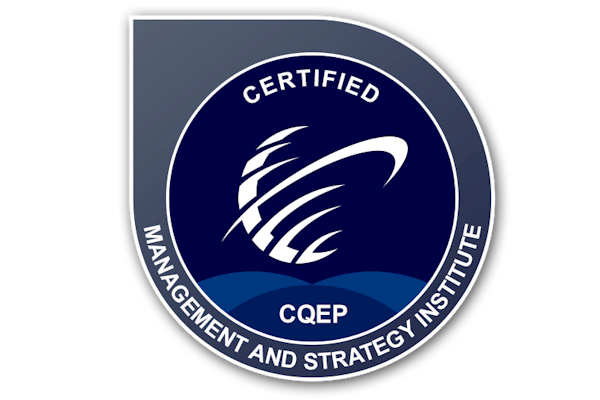
Becoming a Certified Quality Event Planner signifies expertise across various event industry best practices. Administered by the Management and Strategy Institute, the CQEP is an excellent entry-level certification catering to those new to the event space. Fundamental topics covered in the certification include risk analysis, planning and budgeting, defining objectives, and storyboarding.
Price breakdown:
- Course price ranges from $224 to $299.
- Application fee – $300.
To attain the CQEP certification:
- Participate in the online training course provided by the Management and Strategy Institute, covering essential topics in event planning.
- Successfully passed the online exam, demonstrating comprehension of the key concepts and best practices introduced in the training.
- Upon completing the training and successfully passing the exam, graduates will be awarded 30 Professional Competency Units from the Management and Strategy Institute.
- Graduates will receive an official MSI Certification by mail, recognizing their achievement and expertise in quality event planning.
11. CTSM – Certified Trade Show Marketer
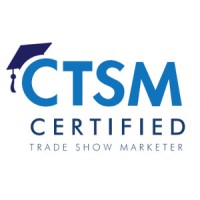
The Certified Trade Show Marketer (CTSM) designation is a certification program offered by Exhibitor Media Group. It is designed for trade show and event marketing professionals, providing specialized training and recognition for individuals involved in planning and executing trade show strategies. The CTSM certification signifies a commitment to excellence in the trade show industry.
Price breakdown:
- For the core curriculum of 23 required and five elective sessions – $3995 – $8000
- Exam and portfolio registration fees – $379 each
How do I become certified?
To obtain the Certified Trade Show Marketer (CTSM) designation, candidates must follow a structured three-step process:
- Enroll in a 28-session core curriculum that covers a diverse range of topics. This includes an in-depth exploration of subjects such as Global Exhibit Marketing, Measurement & Analytics, and Management & Leadership. The curriculum is designed to provide candidates with a robust understanding of various aspects of trade show marketing.
- Upon completion of the core curriculum, candidates must take a final exam. To earn the CTSM designation, a minimum score of 75% is required. This exam assesses candidates’ knowledge and comprehension of the materials covered during the training.
- Following successful exam completion, candidates are expected to build a portfolio showcasing real-life trade show projects for which they were responsible.
12. SEPC – Sustainable Event Professional
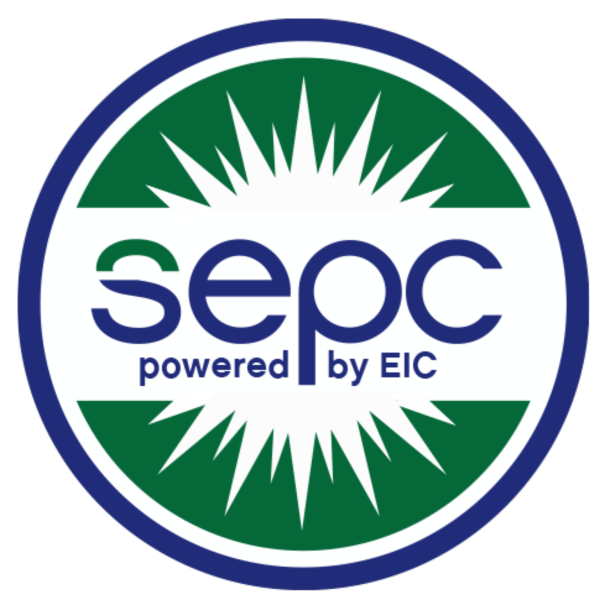
In 2022, the Events Industry Council (EIC) introduced the Sustainable Event Professional Certificate (SEPC) program. This interactive and accessible online course is designed for event professionals seeking to advance sustainability and social impact within their organizations and global business events.
The SEPC comprises 16 modules covering key areas such as recognizing the business value of sustainability, enhancing environmental performance in meetings and events, and employing effective methods to achieve social impact goals. This engaging and insightful format ensures a comprehensive and user-friendly learning journey. After obtaining the certification and before planning your next event, check out our article on 19 Innovative Strategies for Achieving Sustainability in Events.
Price breakdown:
- The certification costs $495, including online course access, a workbook, and a SEPC digital badge, as well as 12 continuing education credits.
How do I become certified?
To become SEPC-certified:
- As part of the program, participants will have access to a digital workbook with activities to customize a roadmap for their own sustainable event.
- Participants must complete 16 modules that include understanding the business value of sustainability, improving the environmental performance of meetings and events, and effective methods for achieving social impact goals.
- Finally, candidates are required to submit a Final Sustainable Capstone Project, integrating the knowledge gained from the coursework.
13. PCM – Professional Certified Marketer
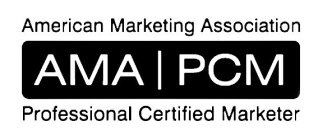
The Professional Certified Marketer (PCM®) program is an advanced certification offered by the American Marketing Association (AMA), which happens to be the most prominent and respected global organization for marketing professionals. This certification is a mark of expertise in professional marketing theory and practice.
Price breakdown:
- For AMA-members – $249
- For non-members – $349 to $399
How do I become certified?
To become PCM certified:
- AMA requires you to pursue ongoing marketing education and growth through Continuing Education Units (CEUs) and recertify every three years. This applies to all AMA PCM certifications, i.e., Content Marketing, Digital Marketing, Social Media Marketing, and more.
- You must report your CEUs online through the AMA system. You are encouraged to report CEUs as earned, but all CEUs must be reported by no later than the expiration date on your certificate.
- The exam comprises 120 multiple-choice questions and will take about two hours to complete, with the option of a 15-minute break halfway through. Answer 80% of the questions correctly and receive your AMA PCM certification.
14. CCEP – Certified Conference and Events Professional
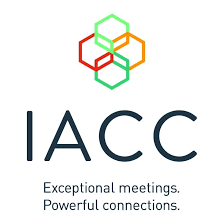
The Certified Conference and Events Professional (CCEP) course is offered by the International Association of Conference Centres (IACC). It is a globally recognized credential for meeting and event professionals willing to learn conference venue management and event execution. The certification focuses on developing unique aspects of planning and running conferences, meetings, and corporate events in dedicated venues. It inculcates its recipients with leadership skills, strategic planning, marketing, and operational excellence.
The course will teach you to understand the logistics of running a conference center, how to attract corporate clients, maximize event revenue, and provide a high standard of hospitality.
Price breakdown:
For IACC-members | For non-members |
$1995 | Approx $2495 |
How do I become certified?
To become CCEP certified:
- Visit the official IACC website to learn more about the course and apply.
- You must have a minimum number of years of professional experience in the conference and events industry or be an IACC member.
- You must complete a structured training program that includes industry-related coursework and assessments and pass a comprehensive exam that tests key conference and event management areas.
15. CED – Certified Event Designer
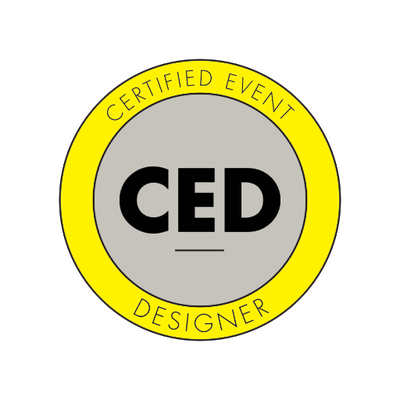
As B2B event organizers, you must move beyond event logistics and focus on creating high-impact experience-driven events that translate into measurable business outcomes. The Certified Event Designer (CED) course will help you achieve this by equipping you with the ability to use Event Canvas methodology to design attendee-driven events.
Event Design Collective offers this course, which focuses on strategic event design, stakeholder engagement, and innovation in event experiences. You will learn to move beyond event execution into event strategy, ensuring that your planned event delivers the utmost event experience to your attendees.
Price breakdown:
- Approx $3500, including training and certification.
How do I become certified?
To become CED certified:
- Complete the 24-hour Event Campus Training program, covering event storytelling, experience mapping, and strategic event planning.
- Create and submit a fully designed event plan that meets business goals and maximizes attendee satisfaction.
- Participate in 6 months of coaching with a mentor to earn the certification.
16. EPMC- Event Planning and Management Certificate
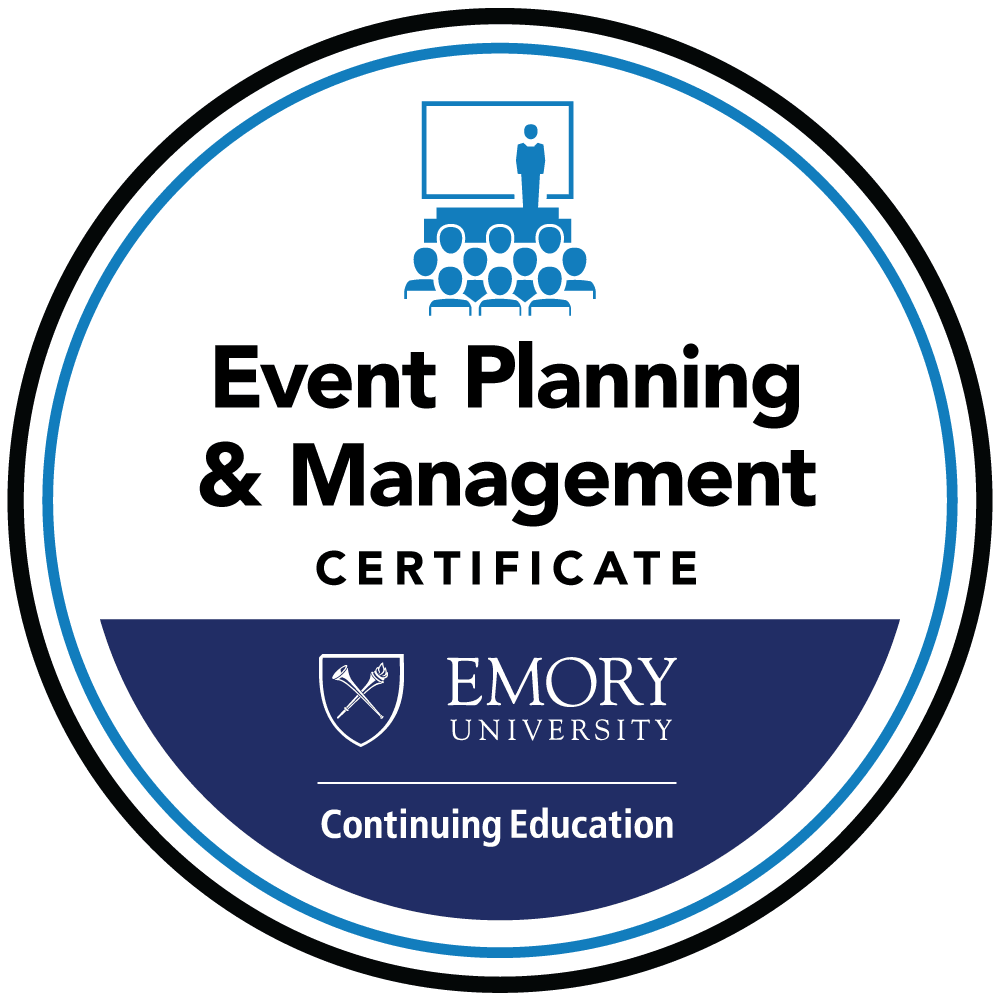
The Event Planning and Management Certificate (EPMC) is a practical, skill-based program that teaches you to gain hands-on experience in event planning, B2B event logistics, financial planning, and marketing execution. This course is offered by various universities and professional organizations and focuses on corporate event planning, sponsorship strategies, and risk assessment. With this course, you can enhance your ability to plan high-return B2B events, secure sponsors, and manage event logistics.
Price breakdown:
- Self-paced online courses – Around $450
- Full program – Around $3000
How do I become certified?
To become EPMC certified:
- Enroll in an accredited program at an institution that offers comprehensive event planning and management courses like Georgetown University, NYU, and Event Leadership Institute.
- You need to complete coursework on B2B event fundamentals that range from planning and executing to marketing and securing sponsorships for the event.
- Engage in practical training and pass the final exam to get the certification.
17. CFM – Certified Food Manager

Event organizers who want to be involved in corporate catering, trade show hospitality, or food and beverage events can enroll in the Certified Food Manager (CFM) course, ensuring compliance with food safety regulations, quality control, operational efficiency, and providing the best catering experience to the attendees. This course is particularly valuable for professionals in corporate luncheons or hospitality-focused events, where food enhances the event experience.
Price breakdown:
- Course price ranges from $75 to $150.
How do I become certified?
To become CFM certified:
- Complete a Food Safety Training Program, accredited by organizations such as ServSafe, the National Registry of Food Safety Professionals (NRFSP), or local health departments.
- Pass a Food Safety Examination that evaluates your safe food handling, sanitation procedures, allergen management, and compliance with food regulations.
- The CFM requires renewal every 3-5 years to stay updated with the health standards, so ensure the due renewal of your certificate.
Benefits of Event Planning Certifications
“Planning” is a very important step for organizing an event. These certificates confirm that you’ll perform this step well in the eyes of your clients in the market. According to a research paper published by the Buffalo State College titled Event Planning: Understanding the Process Through Gained Experience and Research, there are different kinds of event planners in the market. However, all of them are adamant about getting these certificates to ensure that their planning phase goes smoothly.
Event planning certifications offer a range of benefits for professionals in the field. Here’s a quick look at why earning these certifications can significantly boost your career:
- Credibility Boost: Event planning certifications enhance your professional credibility. For instance, holding a Certified Meeting Professional (CMP) designation signifies that you meet rigorous standards, instilling confidence in clients and employers regarding your competence.
- Specialized Expertise: Certifications allow you to specialize, making you a sought-after expert. For instance, obtaining a Sustainability Certification demonstrates your proficiency in organizing eco-friendly events and attracts clients specifically seeking that expertise.
- Career Advancement: Earning certifications opens doors to advanced career opportunities. For example, a Certified Special Events Professional (CSEP) designation is recognized globally and can propel you into leadership roles within the events industry.
- Competitive Edge: In a crowded field, certifications set you apart. The International Live Events Association (ILEA) Certification offers a comprehensive approach, giving you a competitive edge by showcasing your commitment to excellence and adherence to industry standards.
- Client Confidence: Clients are more likely to trust certified event planners. For example, achieving the Event Planning and Management Certification from a reputable institution assures clients that you have undergone rigorous training, guaranteeing a seamless event execution.
How To Choose Your Next Event Planning Certification?
Choosing the proper event planning certification is a personal decision based on your career goals, interests, and resources. Take the time to thoroughly research and evaluate each option before choosing. Here are a few checkpoints that can help you with your decision-
- Identify Your Focus: Identify your specific area of interest within event planning, whether it’s corporate events, trade shows, or digital events. Choose a certification that aligns with your desired specialization.
- Research Reputable Programs: Look for certifications from well-known and respected organizations in the events industry. Consider those recognized globally and with a solid reputation for providing comprehensive and valuable training.
- Check Industry Recognition: Ensure that the certification you’re considering is widely recognized and respected within the event planning industry. A certification with broad industry acknowledgment adds credibility to your profile.
- Look at the Lesson Plan: Review the curriculum and requirements of each certification program. Assess the time commitment and resources required for each certification. Ensure that the content aligns with your career goals and that the program offers a well-rounded education in event planning.
- Evaluate Cost and Return on Investment: Consider the cost of the certification in relation to the potential benefits and career advancement it can bring. Assess the return on investment in terms of increased job opportunities and earning potential.
- Verify Accreditation: Ensure the certification program is accredited by relevant educational or professional bodies. Accreditation adds an extra assurance regarding the program’s quality and adherence to industry standards.
Key Takeaway
After securing an event planning certification, making the most of it for career advancement is crucial. Showcase your credentials proudly on your business card, resume, personal website, LinkedIn, and email signature.
For certified event managers holding multiple certifications, staying connected with the granting organizations, such as ISES, is vital. These organizations often have active local chapters, providing opportunities for networking and sharing best practices among event planners. Getting certified is just the start. Now, use that certification to plan events and grow your career. And if you ever get stuck while planning your next event, check out our article on – The Road to Seamless Events: Handling 17 Event Planning Problems and Solutions Like a Pro.
To stay abreast with all the latest information about the event industry, visit our site—Eventible.




Comments are closed.